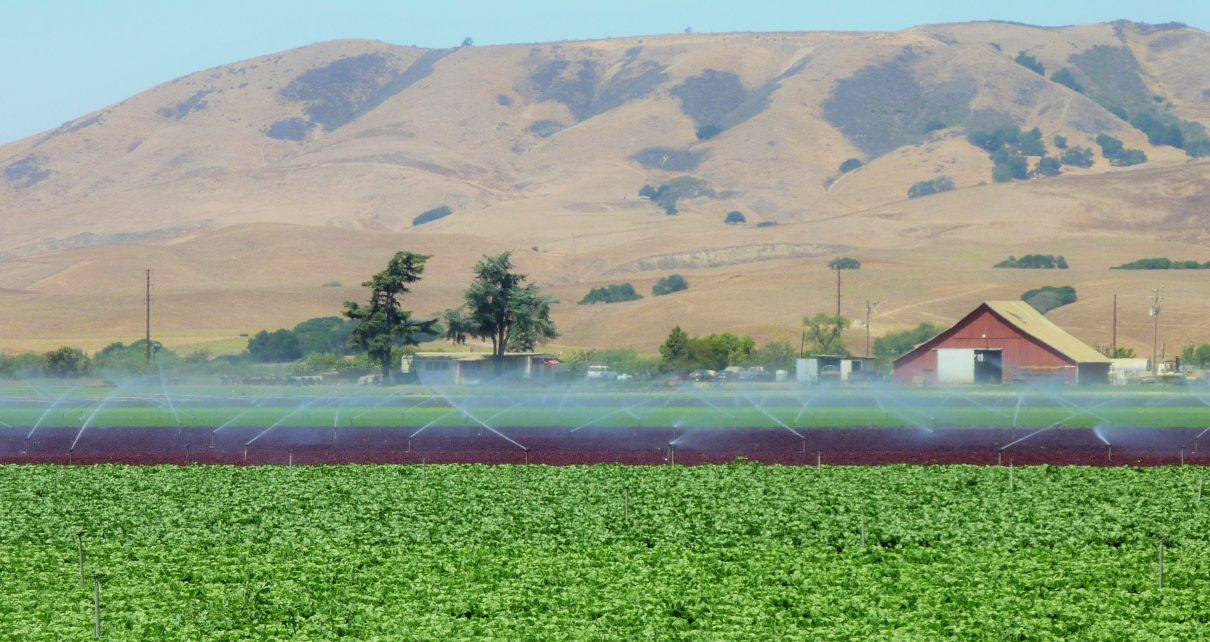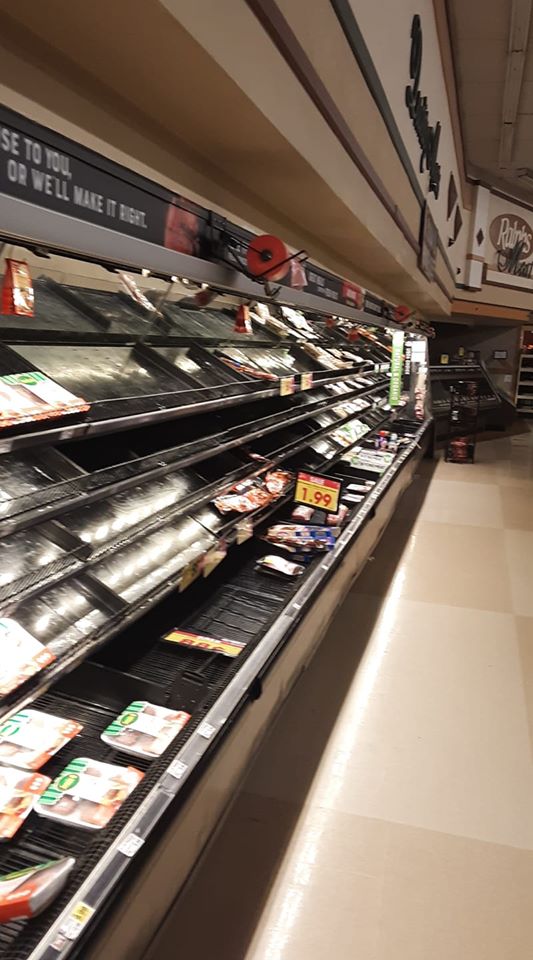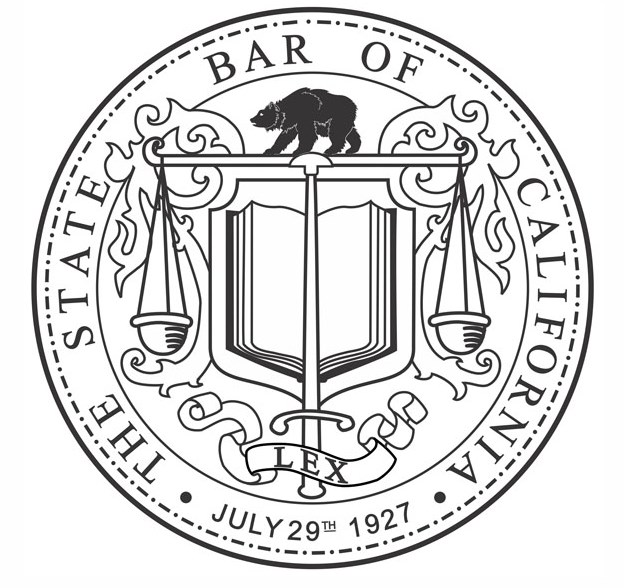
California farming. (Photo: CA Dept. of Conservation)
California Grocery Stores and Supermarkets Normalize as Panic Buying Subsides
Some shortages are still present but new rules are refilling shelves fast
By Evan Symon, March 28, 2020 8:11 am
The panic buying that has plagued California during the past two weeks due to COVID-19 coronavirus fears has been subsiding quickly according to several trade groups and organizations.
A return to normalcy in California food stores
While certain products have remained in short supply such as hand sanitizers, toilet paper, eggs, pastas, and a few other essentials, stores have been rapidly recovering. However the return to normalcy has come with a few caveats.
“We’ve been hearing from corporate about less and less complaints about certain things being out of stock,” explained Ramona Pena, a supermarket manager in Los Angeles. “Right now all of our employees are wearing gloves, taking proper sterilizing measures for coronavirus, and are wearing proper masks. We’ve also instituted limits on some foods like bread, eggs, toiletries, and meat.”
“And we’ve seen remarkable improvements. The meat aisle is stocked at all of our locations now, bread is back to normal, we have frozen veggies on shelves again, and we’ve finally seen salt staying on shelves after two weeks.”
“We are still trying to keep up with the demand for eggs, and toilet paper and things, but compared to two weekends ago when virtually nothing was left we now are almost back to normal.”
Strong supply lines and food production keeping up with demand again
Adequate stores of food, a continuation of farming, trucking remaining strong, and a boost in grocery store help has ensured that California will not be experiencing any major or long-term shortages in the near future.
“It surprises people when I say this, but the U.S. has been keeping up on this,” said trucking representative Steve Hilts. “During the last few weeks I had to personally overview some trucks in our network, and it’s been stunning. Food continues to flow. Processing plants continue to go. Farms continue to bring out food. Some stores I’ve seen can last us for months. And that’s just in this state.”
“It is skewed against other states, especially for areas with less arable land, but it’s incredible. All of these workers are essential for a reason.”
“The only reason we’ve seen shortages is because people initially panicked, or there was a needed item that is usually in shorter supply because it’s not bought as much. That’s it.”
“If you’re looking for something good during these times, it’s probably how California’s agricultural production has stayed so strong and how our supply system, even with hitches, is managing just fine. You can say a lot of things about California, but you can’t really argue against how strong this kind of system is compared to places like New York City or Phoenix.”
“Not every store may be seeing this just yet because some are way more higher traffic or rely more on out-of-state or out-of-country products, but we’ve gotten a lot of thank you’s this week with pictures of stores that are exactly as they were pre-coronavirus.”
California has long been one of the top fruit and vegetable growing states in the nation, growing a monopoly in the US on things like artichoke, walnuts, and celery. Around 13% of the food grown in the entire country comes from California.
‘Buy smart and don’t overfill our carts’
There are some issues that could disrupt some parts of California’s farm-to-table supply later this year, most notably an impending shortage of migrant workers used by many farmers in the state. Short-term food shortages could also linger on. But as Ronald Fong, President and CEO of the California Grocers Association, noted, as long as people are considerate and treat grocery visits as normal weekly visits, California will, by and large, be fine with the food supply.
“In these uncertain times, Californians can be assured that grocery stores will remain open and that food and essential supplies remain plentiful,” said Fong in a statement. “The bare shelves you are occasionally seeing do not indicate lack of supply. It is a temporary result of consumers overbuying given the understandable worry right now. The supply and distribution systems are prepared to accommodate this behavior for a day or two during holidays, but not for extended periods of time.”
“Everyone can help stop this unnatural cycle of demand by simply buying only what you need for a week and curbing the tendency to over-buy. Getting shopping patterns back to normal will reduce stress on the distribution system and can go a long way toward creating some normalcy in our grocery stores. Californians can rest assured there is enough for all of us if we just buy smart and don’t overfill our carts.”
Grocery stores and supermarkets are expected to normalize on many products such as pasta and toilet paper during the next few weeks.
- San Francisco Files Lawsuit Against Oakland Over Airport Renaming - April 19, 2024
- Plastic Ban Bill Passes Senate Committee - April 19, 2024
- ‘Fix Prop 47’ Initiative Receives Over 900,000 Signatures – Qualifies for November Ballot - April 18, 2024





It’s inspiring to know what people behind the scenes CAN do and WILL do in spite of all in a situation like this one. This also reveals the true altruism inherent in capitalism that one doesn’t hear much about.
I keep hearing about the strong supply chain, but the Albertsons in East Orange had more empty shelves this morning than it did a week ago.